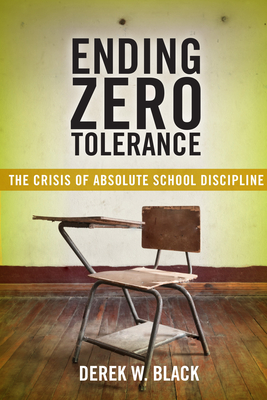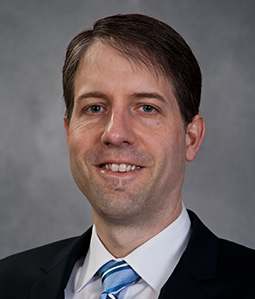

 New York University Press
New York University Press
Ending Zero Tolerance: The Crisis of Absolute School Discipline


Key Metrics
- Derek W Black
- New York University Press
- Paperback
- 9781479882335
- 8.9 X 6 X 0.7 inches
- 0.8 pounds
- Law > Educational Law & Legislation
- English
 Secure Transaction
Secure TransactionBook Description
Answers the calls of grassroots communities pressing for integration and increased education funding with a complete rethinking of school discipline
In the era of zero tolerance, we are flooded with stories about schools issuing draconian punishments for relatively innocent behavior. One student was suspended for chewing a Pop-Tart into the shape of a gun. Another was expelled for cursing on social media from home. Suspension and expulsion rates have doubled over the past three decades as zero tolerance policies have become the normal response to a host of minor infractions that extend well beyond just drugs and weapons. Students from all demographic groups have suffered, but minority and special needs students have suffered the most. On average, middle and high schools suspend one out of four African American students at least once a year.
The effects of these policies are devastating. Just one suspension in the ninth grade doubles the likelihood that a student will drop out. Fifty percent of students who drop out are subsequently unemployed. Eighty percent of prisoners are high school drop outs. The risks associated with suspension and expulsion are so high that, as a practical matter, they amount to educational death penalties, not behavioral correction tools. Most important, punitive discipline policies undermine the quality of education that innocent bystanders receive as well--the exact opposite of what schools intend.
Derek Black, a former attorney with the Lawyers' Committee for Civil Rights Under Law, weaves stories about individual students, lessons from social science, and the outcomes of courts cases to unearth a shockingly irrational system of punishment. While schools and legislatures have proven unable and unwilling to amend their failing policies, Ending Zero Tolerance argues for constitutional protections to check abuses in school discipline and lays out theories by which courts should re-engage to enforce students' rights and support broader reforms.
Author Bio
Derek Black is a Professor of Law at the University of South Carolina School of Law. His areas of expertise include education law and policy, constitutional law, civil rights, evidence, and torts. The focus of his current scholarship is the intersection of constitutional law and public education, particularly as it pertains to educational equality and fairness for disadvantaged students.
His earlier work focused more heavily on intentional discrimination standards. His articles have been published and are forthcoming in the Stanford Law Review, California Law Review, Northwestern University Law Review, Vanderbilt Law Review, Washington University Law Review, Minnesota Law Review, Boston University Law Review, William & Mary Law Review, Boston College Law Review, and North Carolina Law Review, among various others. His work has also been cited in the U.S. Circuit Courts of Appeals and by several briefs before the U.S. Supreme Court.
Prior to teaching, he litigated issues relating to school desegregation, diversity, school finance equity, student discipline, and special education at the Lawyers’ Committee for Civil Rights Under Law. He left the Lawyers’ Committee to teach at Howard University School of Law, where he also founded and directed the Education Rights Center.
Professor Black has also taught at the University of North Carolina School of Law and American University Washington College of Law. Beyond teaching, has been active in various outside endeavors, including serving as pro bono counsel in civil rights cases, a consultant to civil rights campaigns, and a member of the Obama-Biden Presidential Transition Team.
He attended law school at the University of North Carolina at Chapel Hill, where he was a member of the Law Review for two years, was awarded the Dan Pollitt ACLU fellowship in his third year, and graduated with High Honors.
Source: University of South Carolina - School of Law
Videos










Community reviews
Write a ReviewNo Community reviews